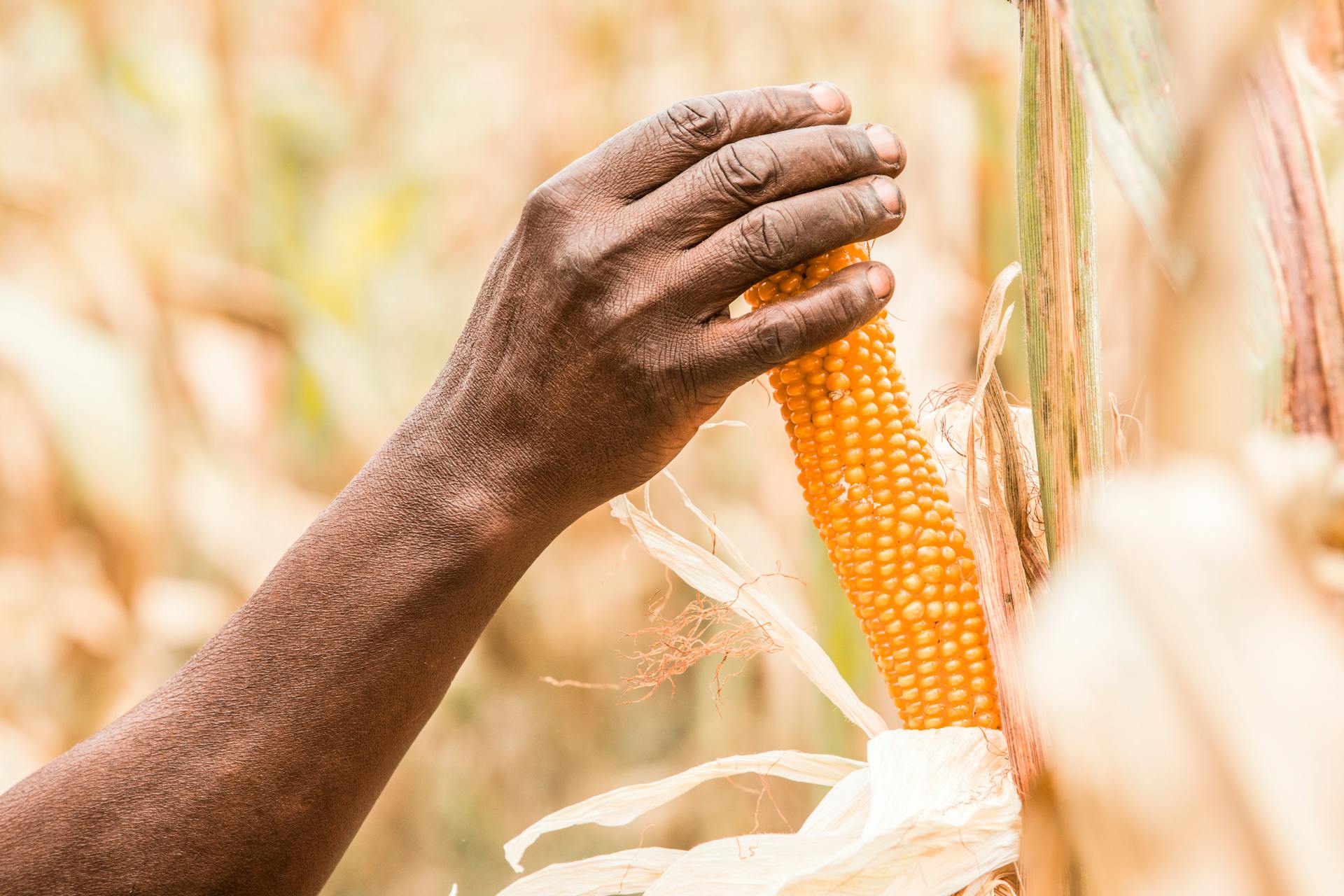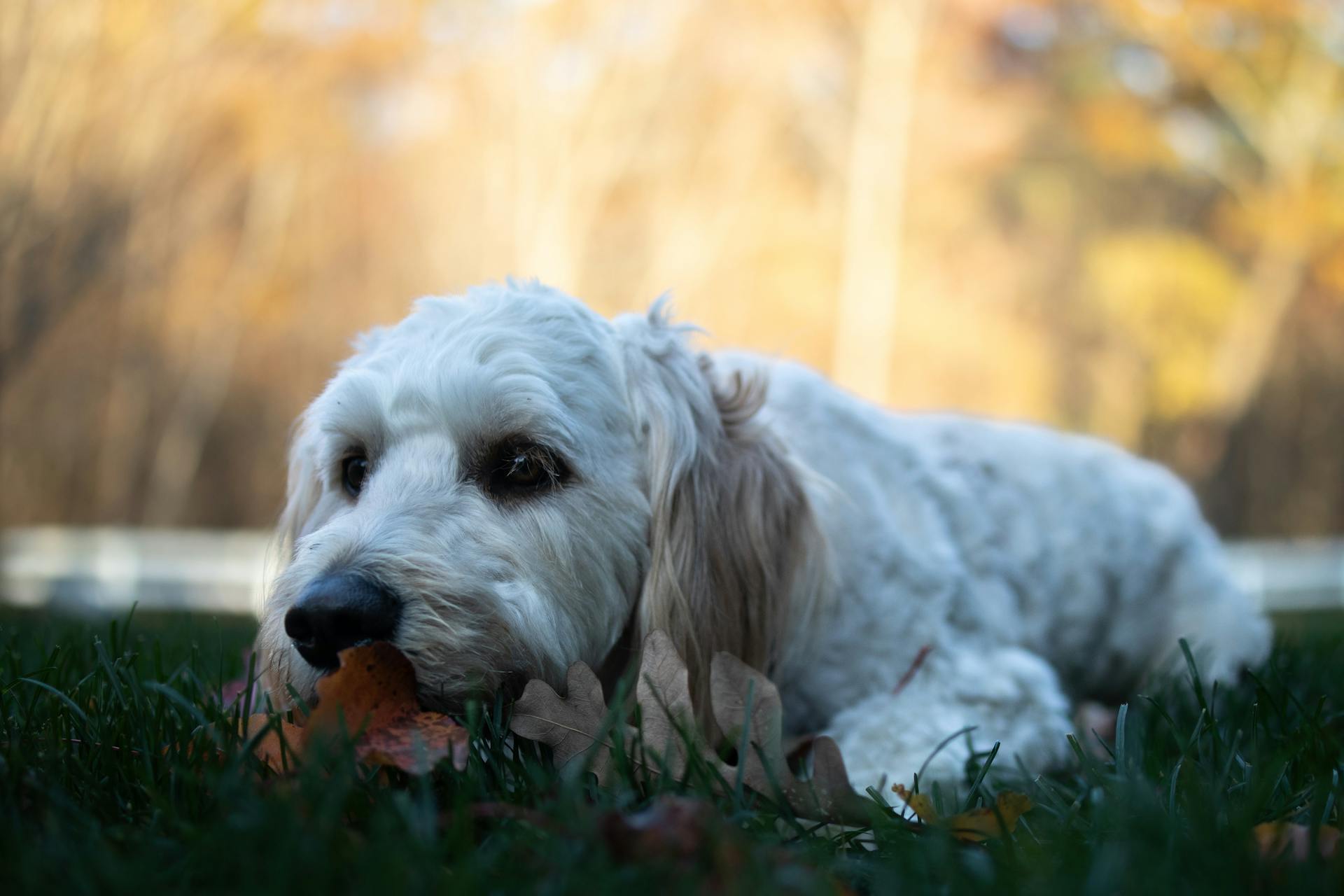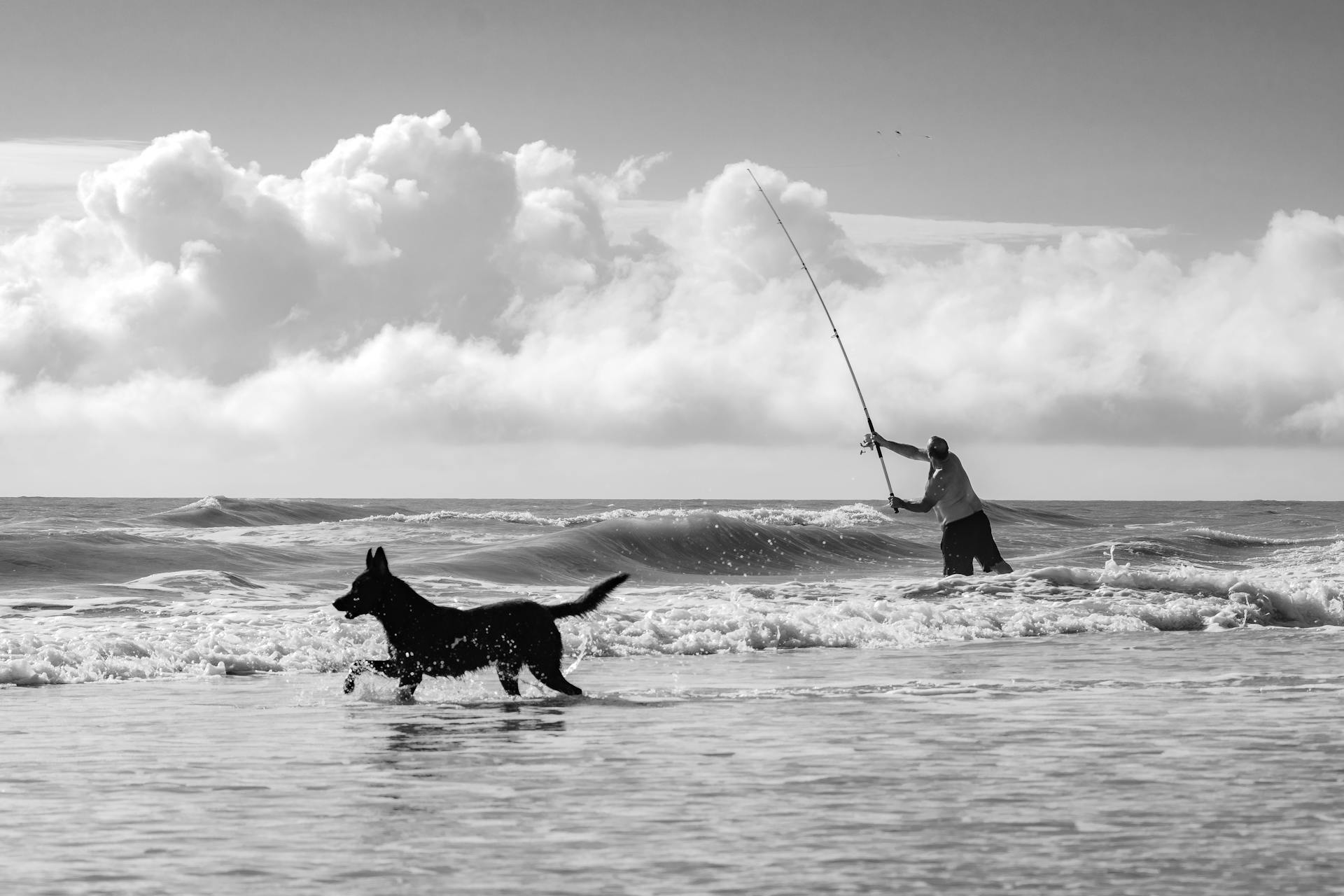
Corn is often used as a filler in dog food, making up a significant portion of some recipes. This can lead to digestive issues in some dogs.
Some dog owners swear by corn-free diets, but is there any real evidence to support this claim? Research suggests that while some dogs may experience digestive issues on a corn-heavy diet, many others can tolerate it just fine.
The key is to choose a high-quality dog food that uses corn as a nutrient-rich ingredient, rather than a filler. Look for foods that use whole corn kernels or cornmeal, which can provide fiber and other essential nutrients.
Is Corn Bad for Dogs?
Corn is generally safe for dogs in moderation, but it's essential to keep human food, including treats, to less than 10% of your pup's diet to avoid weight gain and nutritional imbalances.
While rare, some dogs can develop a corn allergy due to an overactive immune system. This allergy can cause a range of symptoms, including diarrhea, vomiting, itching, skin irritation, abdominal cramping, hives, and obsessive licking or biting of the paws.
If your dog is exhibiting any of these symptoms, it's crucial to consult with a vet to rule out other conditions. The vet may recommend an elimination diet to determine which food item is causing the issue.
Research shows that it's more common for dogs to be allergic to the protein source in their food rather than other components like corn or rice. If your dog is allergic to corn, you'll need to find dog foods that don't contain corn and corn products.
Here are some common symptoms of a corn allergy in dogs:
- Diarrhea
- Vomiting
- Itching
- Skin irritation
- Abdominal cramping
- Hives
- Obsessive licking
- Biting of the paws
Feeding Your Dog
Feeding your dog corn can be a safe and healthy choice, as long as you do it in moderation. In fact, it's perfectly safe to feed your dog corn off the cob in small amounts.
Corn is a popular cereal grain that contains a good amount of vitamins and minerals, depending on the type of corn. Many dog foods already include corn, making it a common ingredient in canine diets.
You should only feed your dog plain corn, without any added seasonings or butter. Many people like to put salt, pepper, and butter on their corn, but these flavors are not safe for dogs.
It's essential to confirm that your dog isn't allergic to corn before giving it to them. Many veterinary nutritionists agree that corn can be part of a well-balanced diet, but allergies can still occur.
Feeding too much corn can lead to an unbalanced diet, as it's high in starch. You can feed corn in moderation or as a supplementary role to ensure your dog gets a balanced diet.
Expand your knowledge: Food Alternatives for Dogs
Dog Safety and Nutrition
Corn is a common ingredient in dog food, but is it safe and beneficial for your furry friend? According to veterinary nutritionists, corn is a relatively inexpensive grain that can be a good source of protein, carbohydrates, linoleic acid, and antioxidants.
In moderation, corn can be a part of a well-balanced diet for dogs. Many dog foods already contain corn, so it's essential to check the ingredient list and confirm that your dog isn't allergic to it before giving them corn as a treat.
Feeding your dog plain corn is best, without any added seasonings or butter. Some people like to slather butter on their corn, but this is not recommended for dogs.
Corn contains healthy nutrients like linoleic acid, which is essential for skin and coat health. However, it's not the only source of healthy omegas, vitamins, and minerals. Other foods like green beans, peanut butter, chicken, and pork are also rich in these nutrients and safer for dogs to eat.
Here's a breakdown of the nutritional benefits of corn for dogs:
- Protein
- Carbohydrates
- Linoleic acid
- Antioxidants
- Fiber
- Vitamins
It's worth noting that while corn has nutritional benefits, it's not a complete source of nutrients for dogs. If you're looking to add more omegas or specific vitamins to your dog's diet, consider a healthy dog chew or consult with a veterinary nutritionist.
Key Takeaways
Corn can be a safe treat for dogs in moderation. You just need to be mindful of the risks.
It's essential to only give your dog the kernels, not the entire corn cob, as it can cause serious gastrointestinal obstruction. This is a common mistake many pet owners make, and it's crucial to avoid it.
Consult with your vet before introducing corn to your dog's diet, as they can provide personalized advice on safe consumption amounts. They'll help ensure your furry friend is getting all the necessary nutrients.
Here are some key things to remember when giving corn to your dog:
- Give only the kernels, not the cob.
- Avoid toppings like butter and salt.
- Make sure your dog gets all the necessary nutrients.
- Consult with your vet before introducing corn.
Frequently Asked Questions
What ingredients should I avoid in dog food?
Avoid dog food with corn and wheat gluten, meat by-products, and artificial preservatives like BHA, BHT, and Ethoxyquin, as well as potentially toxic ingredients like food dyes and rendered fat. Opt for a balanced diet with wholesome ingredients for your furry friend's health and well-being.
Featured Images: pexels.com


